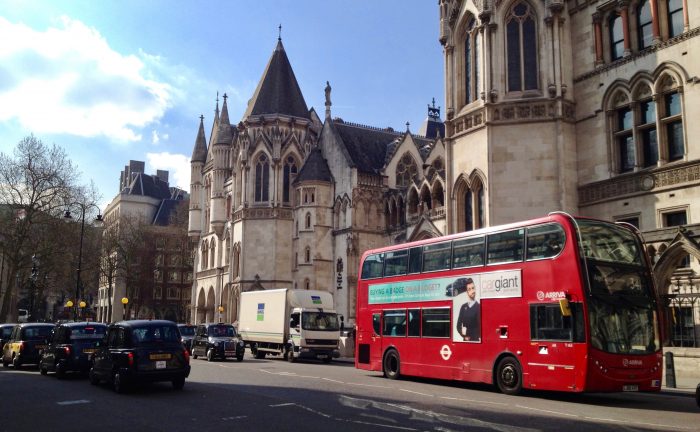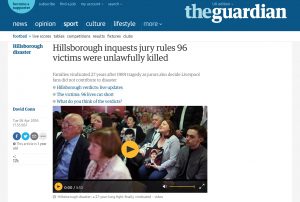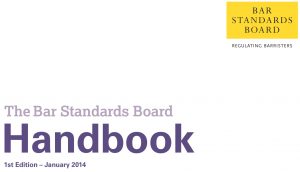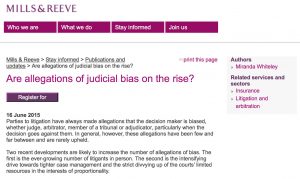
 The British legal system is portrayed by many as a bastion of truth and justice. Unfortunately, that perception doesn’t reflect the reality others experience. Perhaps the most obvious recent example of injustice in the UK is Hillsborough: it took twenty seven years for the families of those who had been unlawfully killed to finally be vindicated.
The British legal system is portrayed by many as a bastion of truth and justice. Unfortunately, that perception doesn’t reflect the reality others experience. Perhaps the most obvious recent example of injustice in the UK is Hillsborough: it took twenty seven years for the families of those who had been unlawfully killed to finally be vindicated.
After a lifetime of tenacity, justice prevailed. Is this what victims have to go through to get justice? Does it mean that if one lacks Herculean persistence, justice will be denied? Of course most of the time, justice appears to have been done, but do a brief search on social media and you’ll find many people who feel cheated by a system they thought would protect them, not victimise them.
There are supposed to be mechanisms in place to protect people from injustice, and as James Turner QC, a British barrister who claims to be “fighting injustice wherever it raises its ugly head!” said on twitter:
“If the barrister “knows” (as opposed to suspects) that it’s a lie it would be serious professional misconduct to put it as a positive case.“
 That’s where the Bar Standards Board (BSB) should come into its own. This is an organisation designed to regulate barristers (those lawyers who argue the case in court). The BSB handbook states categorically that barristers must not deceive the court by making assertions “which you know, or are instructed, are untrue or misleading”. It also states “you must not call witnesses to give evidence or put affidavits or witness statements to the court which you know, or are instructed, are untrue or misleading”.
That’s where the Bar Standards Board (BSB) should come into its own. This is an organisation designed to regulate barristers (those lawyers who argue the case in court). The BSB handbook states categorically that barristers must not deceive the court by making assertions “which you know, or are instructed, are untrue or misleading”. It also states “you must not call witnesses to give evidence or put affidavits or witness statements to the court which you know, or are instructed, are untrue or misleading”.
Yet on enquiring to the BSB’s Professional Conduct Department’s Assessment Team regarding incontrovertible evidence of a barrister lying in court, we were told they “cannot require a barrister to provide any compensation, reduce fees, apologise, or provide any other kind of redress.”
What is the point of brandishing such lofty rules, if the BSB can’t even get a barrister to just apologise for deceiving the court and hence perverting the course of justice?
 Another protection from corruption and injustice should be the actual judges. Due to Legal Aid being slashed, courts are witnessing a marked increase of parties representing themselves. Some in the profession are concerned that this rise in “litigants in person” (LiPs) will lead to an increase in accusations of judicial bias: likely to arise from LiP’s inexperience in legal proceedings, and undoubtedly some such accusations must be accounted for by this.
Another protection from corruption and injustice should be the actual judges. Due to Legal Aid being slashed, courts are witnessing a marked increase of parties representing themselves. Some in the profession are concerned that this rise in “litigants in person” (LiPs) will lead to an increase in accusations of judicial bias: likely to arise from LiP’s inexperience in legal proceedings, and undoubtedly some such accusations must be accounted for by this.
However, how many are aware that should a judge be accused of bias, the only person who gets to decide if this is actually the case is… that very judge? An example is Lord Justice Simon’s response to a recusal request. He ignored a breached court order, and obviously tampered evidence. He argued that an admission of lying in private was the same as going on the stand and denying having lied. Yet, “I have considered the applicants’ further submission of 14 November 2016 that I should recuse myself on the grounds of bias. […] The submission is, in any event, without merit.”
These are merely two examples, but they clearly illustrate a British justice system that may not be as independent, unbiased and uncorrupted as we are led to believe. It may however corroborate Nicholas Wilson, the man who blew the whistle on the HSBC corruption scandal, who stated “Britain is the most corrupt country in the world”.
Bar Standards Board, British, BSB, featured, Hillsborough, James Turner QC, justice, LiP, Lord Justice Simon, Nicholas Wilson, Royal Courts of Justice, toothless
Willful blindness by UK Judges is common practice in UK Courts. This is compounded further by 98.2% of UK Barristers not Authorized to Conduct Litigation. There is NO RULE OF LAW in UK Court Rooms. Thousands of UK Citizens have been denied their Human and Civil Rights by the Dransfield Vexatious Court Precedent GIA/3037/2011 Dransfield V Information Commissioner’s Office.